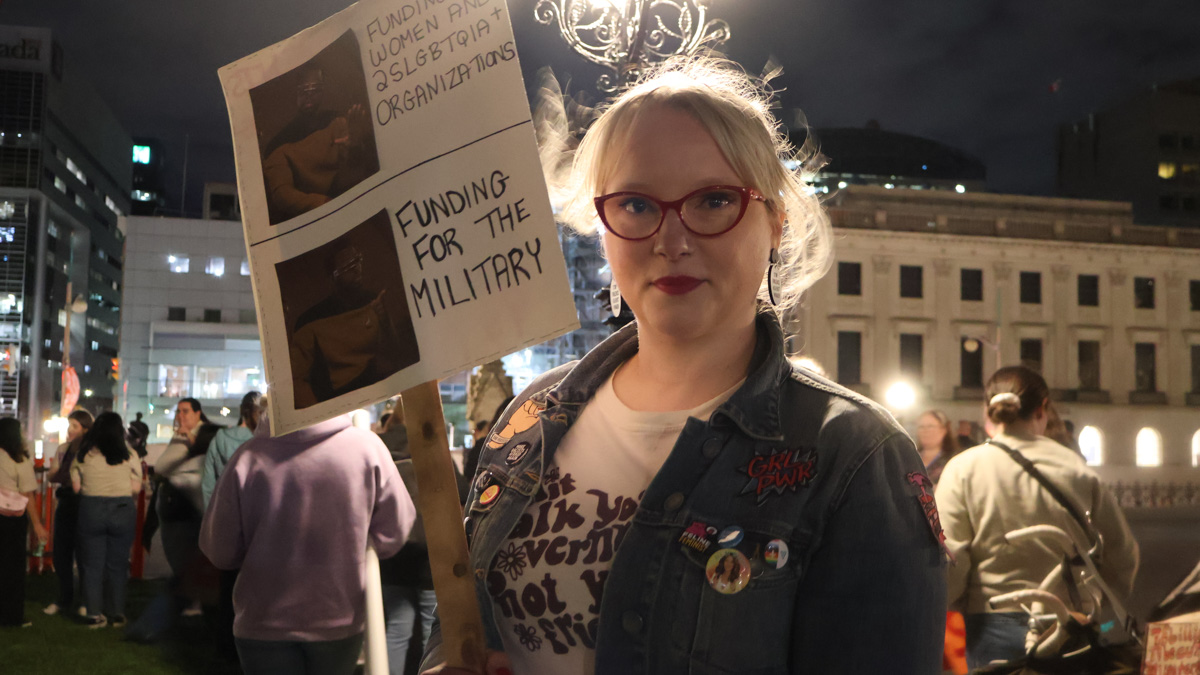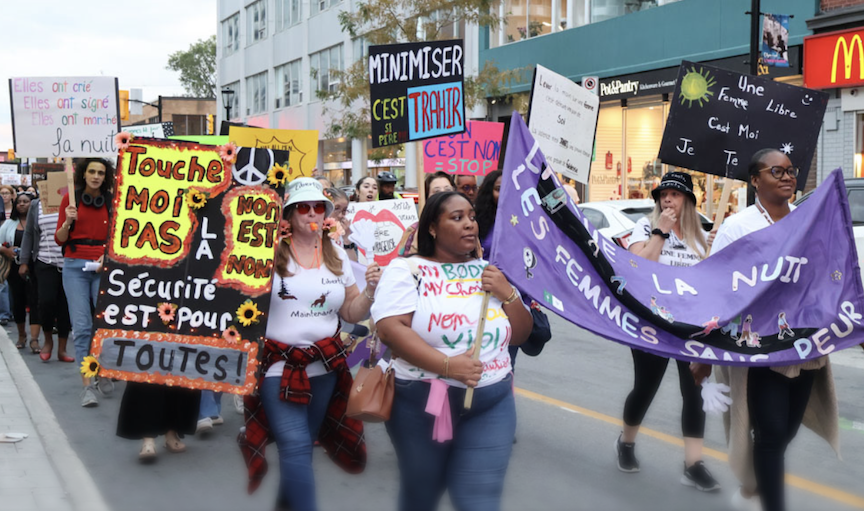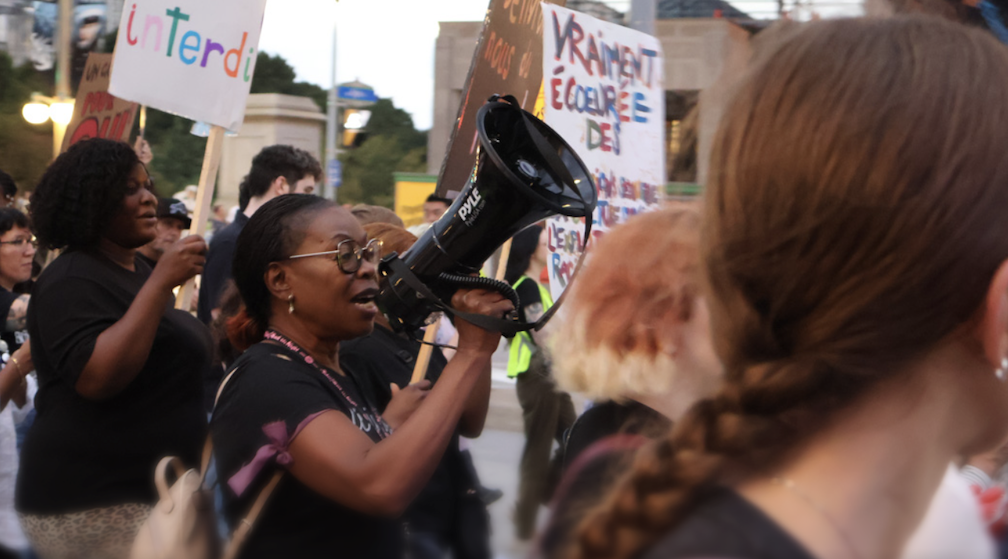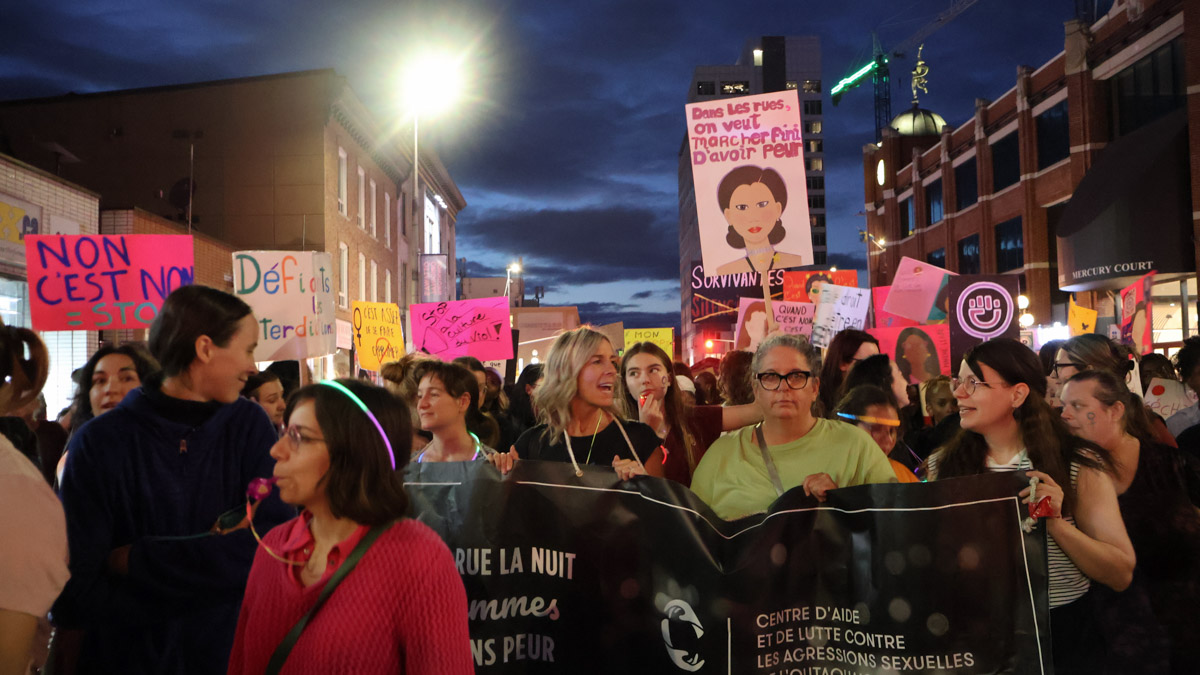Ottawa support groups for survivors of gender-based violence say proposed federal funding cuts to Women and Gender Equality Canada (WAGE) would make it difficult to help survivors across the city and beyond.
In July, the Canadian Press reported WAGE could face potential cuts of around 80 per cent. In a statement to Capital Current, WAGE said this figure “reflects the currently planned expiry of certain time-limited program funding.” Full-time staff numbers, too, are expected to decrease by almost 200 employees.
“While we are taking immediate action to protect the Canadian economy from tariffs, our funding for gender equality Canadians continues,” WAGE told Capital Current. “For example, our half a billion dollars in funding for ending gender-based violence is ongoing to 2027.”
Astara van der Jagt is director of programs for the Ottawa Coalition to End Violence Against Women. She’s a survivor of gender-based violence who has wanted to work in the violence prevention field since her childhood.
She said WAGE has provided crucial funding to grassroots and frontline organizations that help the Ottawa Coalition operate. Our Voices Symposium and an Ottawa Coalition mentorship program, which both focus on BIPOC leadership and advocacy around preventing gender-based violence, for example, are funded through WAGE and could both face significant challenges if funding is cut.
“There’s a very real fear that there is going to be a huge impact on the communities that we work with and more specifically […] also have a direct impact on our programming,” said van der Jagt.

In 2023, the Ottawa Coalition initiated a study that identified the barriers and gaps different organizations, shelters and services already face when responding to gender-based violence. Around 62 per cent of the organizations reported that they had to turn away between one and around 30 people per week because they didn’t have the resources or capacity. More than 70 per cent of organizations said they didn’t have enough financial resources.
“When WAGE cuts funding to organizations that have direct services delivered to gender-based violence survivors, it’s survivors, actually, that aren’t able to get beds [or] services that they need,” van der Jagt said.
Lyra Evans, executive director of Planned Parenthood Ottawa, said funding cuts would make it harder to provide services such as abortion, adoption and parenting help, or counseling after pregnancy loss. In 2024, Planned Parenthood reported a 39 per cent increase in counselling requests for these services.
The Ottawa branch receives a $125,000 WAGE grant to reduce barriers to sexual health for marginalized identities. They’re asking for monthly donors to support their services, aiming for 400 donors at $10 a month.
It is possible to prevent the intimate partner violence and gender-based violence epidemic in Canada, but we need everyone to commit to co-designing and implementing those solutions.
Astara van der Jagt, director of programs for the Ottawa Coalition to End Violence Against Women
When she first heard about the proposed cuts, Evans’s reaction was a “combination of disappointment and resignation.”
“The federal government has made it quite clear that it intends to fund different priorities than previous governments have,” she said. “There are many people who are not well served by institutions […] so having organizations that can make sure that we take a special approach and catch people who wouldn’t be supported is really important.”
The concern is not just at the federal level.
On its website, the Ottawa Coalition criticized the City of Ottawa’s 2025 budget for allocating $442 million to police services and only $30 million to “over 100 community-based organizations.” The Ottawa Coalition recommended council instead invest in prevention and community-based solutions, listen to frontline workers and advocates and commit to meaningful support in combating the epidemic of intimate partner violence.
City council declared intimate partner violence an epidemic back in 2023, in response to an inquest into the murders of three women in Ottawa Valley. The city has since seen four femicides in 2025, up from three the previous year. The OPS also got more than 6,600 reports of intimate partner violence in 2024.
Van der Jagt believes governments are not doing enough to address gender-based violence. A lack of affordable housing, food insecurity, and the need for wraparound support for survivors pose significant challenges.
“A lot of survivors are being put in motels where there are no kitchens, […] and as a result they have to resort to takeout if they don’t have a car or there isn’t access to public transportation,” van der Jagt said.
She also said an independent watchdog is needed that holds them accountable for making progress, and for preventing the loss of progress because of election cycles.
‘Take Back the Night’
Julie Lalonde is an Ottawa-based public speaker and women’s rights advocate who has organized feminist events for over 20 years. She helped organize a rally that culminated in a “Take Back the Night” march this fall.
Hundreds of supporters from Ottawa, Gatineau and Lanark County marched through the capital to Parliament Hill in a show of solidarity with survivors of sexual assault and gender-based violence.

Lalonde said she and other feminist leaders across Canada planned the march for the return of the House of Commons this fall.
“We thought, ‘What a kind of incredible opportunity to combine forces and really try to galvanize as many people as possible?’ […] especially since we now have a date of when the budget will be dropped.”
Lalonde said the government has focused on strengthening and creating laws. She criticized the lack of attention to women’s issues more generally during the federal election.
“That was a huge red flag that we saw in the election season, and we’ve seen it played out since women are not part of the conversation,” Lalonde said.
Lalonde says it’s important to understand how economic uncertainty can be dangerous, even fatal for some in marginalized communities, noting an increase in femicide and other hate crimes.

Lalonde said people who are concerned about WAGE’s future should write elected officials as an affordable and effective form of advocacy.
While the cost of inaction in addressing gender-based violence is difficult to calculate, van der Jagt said it is significant. She said it’s important for every level of government to commit to addressing the root causes.
“It is possible to prevent the intimate partner violence and gender-based violence epidemic in Canada, but we need everyone to commit to co-designing and implementing those solutions.”




